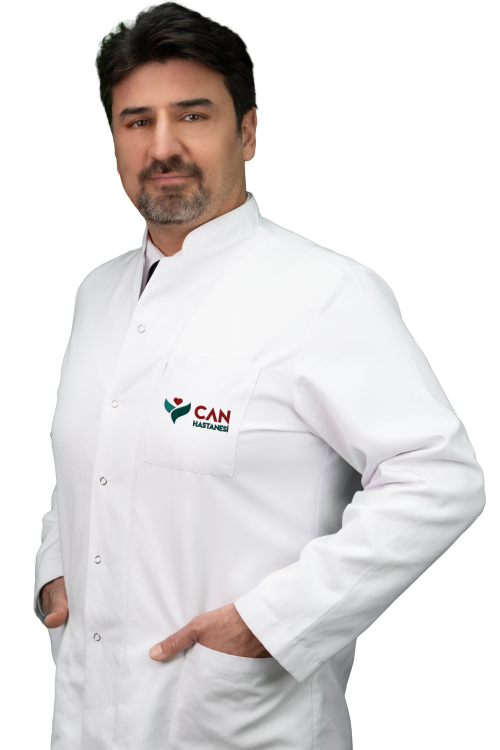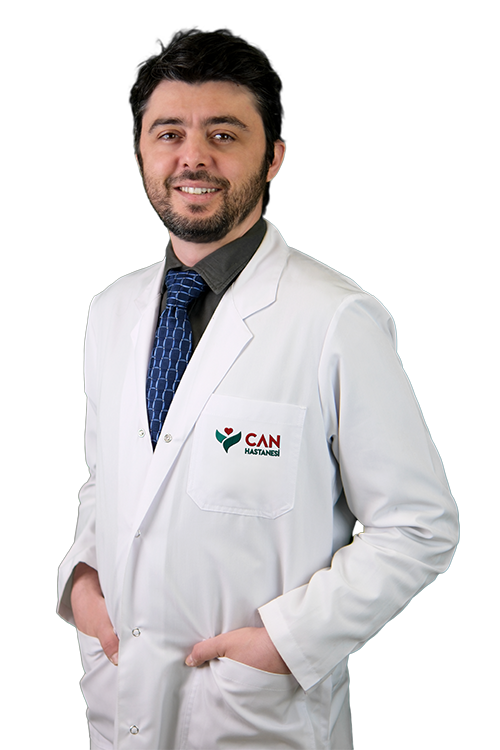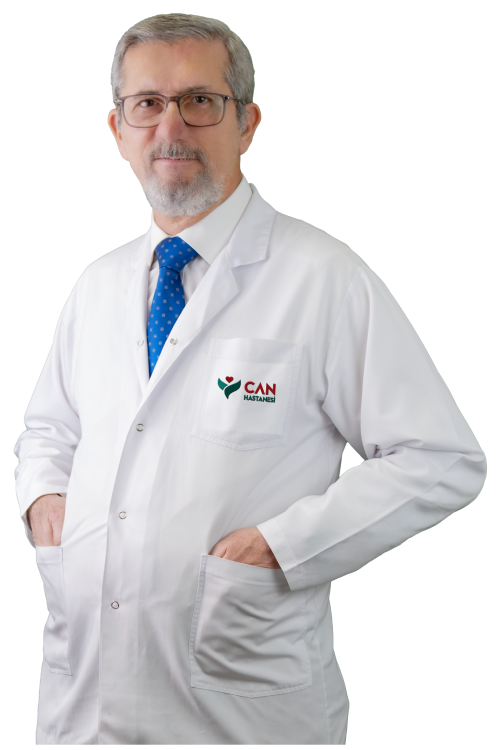Rhinoplasty (Nose Job) and Non-Surgical Rhinoplasty in Izmir Private Can Hospital
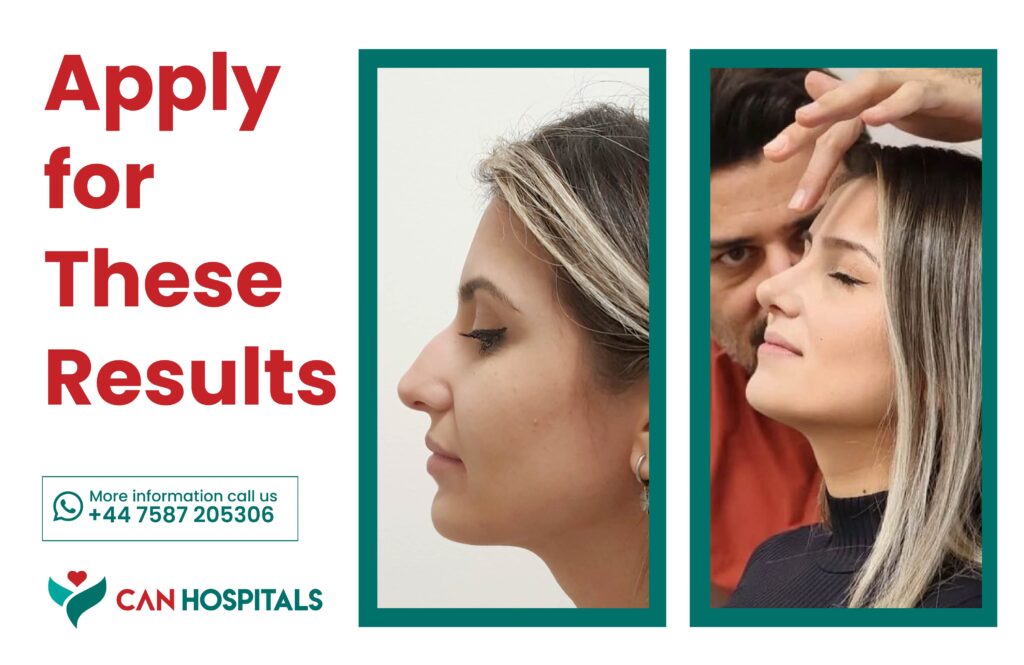
In Izmir Private Can Hospital, both rhinoplasty surgery and non-surgical rhinoplasty are performed meticulously by the experienced and competent doctors and the professional health care team. If you are unhappy with the shape of your nose and you feel the fear and anxiety that comes along with any surgery, we have got another option that might work perfectly for you in our hospital.
Non-surgical rhinoplasty or liquid rhinoplasty is an alternative approach to rhinoplasty surgery to change the shape of the nose for people who don’t want to undergo plastic surgery and liquid rhinoplasty is a cosmetic procedure performed with dermal fillers. During liquid rhinoplasty procedure, the filler is injecting on purpose adding volume. The demand for liquid rhinoplasty has also boomed in recent years.
In addition, along with rhinoplasty, septorhinoplasty, that is, nose breathing difficulty and nose aesthetics, is among the procedures performed in our hospital. Septorhinoplasty is an operation to improve the appearance of the nose (rhinoplasty) and to improve how you breathe through your nose (septoplasty).
Rhinoplasty (Nose Job/Nasal Aesthetic Surgery)
Rhinoplasty, also known as nose job or nasal aesthetic surgery or nasal reshaping surgery, is one of the most performed medical aesthetic intervention and very popular cosmetic surgery procedures. With rhinoplasty, the appearance of the nose is corrected, the shape of the nose is fixed and the nose job is provided to breathe more easily.
Rhinoplasty (Nose Job) enhances your facial harmony and provides you a more aesthetic and beautiful appearance. Your beauty shines with this professional aesthetic surgery. Rhinoplasty is a surgical operation performed to treat nasal deformities and to make the nose more attractive.
This operation may also be performed to make a nose suitable for face proportion. As a result of this process, the angle between the root of the nose and the forehead or between the tip of the nose and the lip can be changed.
Who is a good candidate for rhinoplasty (nose job)?
Patients whose complaints are proportional to the degree of their nasal deformities are good candidates for the operation. A systematic and comprehensive nasofacial analysis is applied to plan the surgery. The nose is evaluated within the integrity of the face. The type, thickness and structure of the skin of the nose are included in this assessment.
Ideal candidates for rhinoplasty (nose job) are the patients who are physically and mentally mature and whose nasal structure and tissues’ growth are complete. However there are various factors in defining the suitability for surgery. In order to define this, it is important to have a preliminary interview with the surgeon who will perform the operation before the surgery.
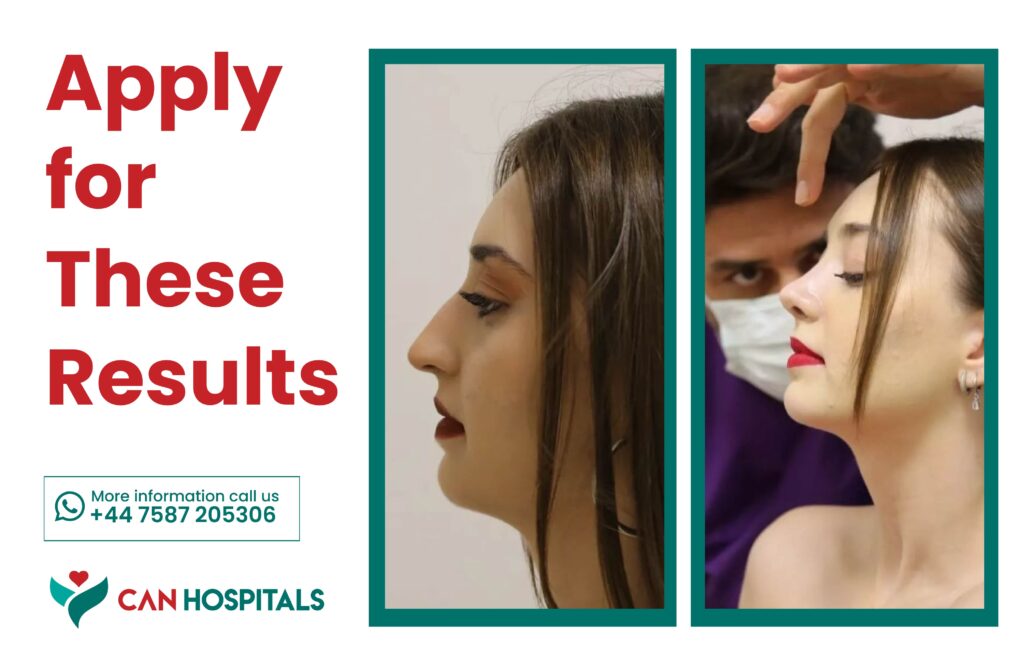
When is rhinoplasty performed?
● In the anatomical structure of nose and face, if the nose is too big or too small for the face,
● If the nose looks too wide from profile view,
● If the tip of the nose takes on a dropping appearance,
● If the nasal wings are too wide and thick (boxer’s nose)
● If the nostrils are too wide or narrow,
● If the nasal septum is crooked or displaced to one side (deviated septum)
● If there is an asymmetrical appearance due to accident or trauma,
● If you have difficulty breathing or have sleep apnea.
Preoperative evaluation
A good examination of the existing anatomy before the rhinoplasty surgery and nasal and facial analysis are the main factors for a good result. One of the most important things to be considered before rhinoplasty is whether you have any health problems that can cause breathing difficulty. During the operation, other causes of breathing problems such as nasal polyps can also be eliminated.
Before the operation, several factors that may necessitate a surgeon to cancel surgery such as the presence of a disease or regular use of medicines are determined. If there are flu, colds and various infections that can be treated, these diseases must be treated before the operation. In the presence of a chronic and inoperable disease, suitability for surgery is assessed as a result of the medical examination.
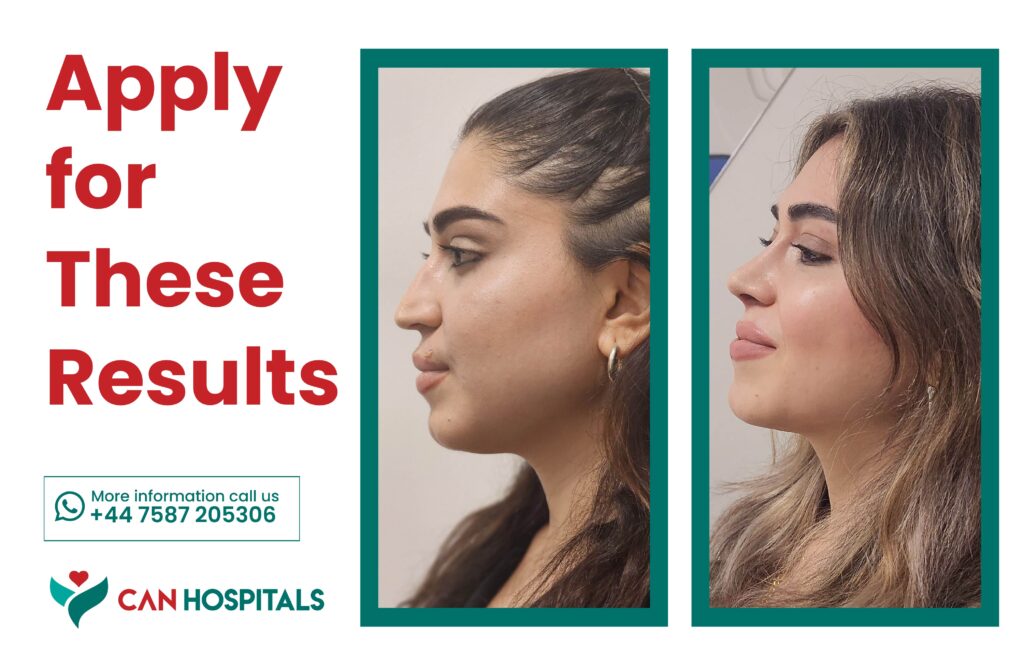
Rhinoplasty recovery process
The recovery process after rhinoplasty can be divided into various periods. Pain is relieved by medications after rhinoplasty. It is recommended to apply cold compresses around the eyes and keep the head elevated to minimise bruising and swelling after the operation.
The first week after the rhinoplasty (nose job) surgery
● In the first week, the bruises begin to decrease in a few days, at the end of two weeks they completely disappear.
● You can consume liquids 2-3 hours after the surgery. In the first week, it is necessary to avoid consuming solid foods and to prefer eating soft food.
● It is common to experience more bleeding on the first day after the surgery and less bleeding on the second day as a slight leak.
● In the first hours after the surgery you can breathe well through your nose but then you may have nasal congestion due to nasal edema and swelling. For the first week, this is an expected, natural and temporary condition.
● In the first weeks after surgery, you can relieve nasal congestion by applying the medications recommended by your surgeon into your nose.
● Nasal congestion will cause dry throat, so you should drink enough water.
A few weeks after rhinoplasty (nose job) surgery
● Tapes on the nose are removed at the end of the second week.
● It takes about two months for the swelling to disappear completely.
● It takes a year for the final shape of the nose to resolve.
● You can do physical exercise and most of your daily activities again. (4. week)
● Although the obtusion disappears after a few weeks, it may take several months to return to normal.
● You can wear glasses again by putting them on the splint. (6. week)
Factors that have positive impacts on the rhinoplasty (nose job) result
● Not having rhinoplasty surgery before
● Wound healing without any problems
● Having a thin nasal skin
● Having a strong cartilaginous tissue
● Having a thin nose tip
● No disproportion between nasal and facial morphology
● Following the medical advice and care after the surgery.
Factors that have negative impacts on the rhinoplasty (nose job) result
● Poor wound healing
● Having a thick nose skin
● Having a weak cartilage
● Having a thick nose tip
● Disproportion between nasal and facial morphology
● Not paying enough attention to postoperative care
● Failure to follow medical advice
Factors that have very negative impacts on the rhinoplasty (nose job) result
● Having had one or more surgeries before
● Need for ear cartilage and rib grafting in the surgery
● Having a wound on the operated skin or a condition that complicates the surgery.
A single medical intervention can never achieve a definite result in such patients. Their appearance can be improved at a reasonable level so that they can feel more comfortable in social life. More than one surgery may be required in such patients.
Results after the rhinoplasty
What kind of improvement will be in the nose; It depends on the surgical intervention performed, the structure of the nose, the state of the cartilage tissue and nasal skin. The striking results can be achieved in the presence of obvious deformities in the nose. Small defects can be corrected quite successfully, but the results may not be equally obvious.
Family relatives and friends of the person may say that they do not see a big difference in the person’s face after the rhinoplasty surgery. In fact, this situation is positive for the outcome of this surgery. Because a natural appearance is provided after successful rhinoplasty, a major change cannot be felt in the appearance. The purpose of the nose surgeries is not to make a remarkable new nose. It is aimed to create a nose that is compatible with the facial features of the person and helps to increase the person’s beauty.
Factors that positively affect the rhinoplasty (nose job) result;
• No previous surgeries
• Wound healing without any problems
• Thin skin nose
• Strong cartilage tissue
• Thin nose tip
• No disproportion between nose and face
• Following the doctor’s recommendations after surgery
Factors that negatively affect the rhinoplasty (nose job) result;
• Poor wound healing
• Thick skin nose and seborrhoeic
• Weak cartilage tissue
• Thick nose tip
• Disproportion between nose and face
• Not following the doctor’s recommendations after surgery
One of the most common symptoms is that the chin is receding and small compared to the nose and forehead. In such cases, chin augmentation with aesthetic surgery is recommended in order to obtain a more proportional profile and to provide a more positive result of the surgery.
Other factors that negatively affect the rhinoplasty (nose job) results:
• One or more previous surgeries
• Need for ear, cartilage and rib grafting in surgery with the large-scale intervention
• To be unhealthy skin in the surgery area
• To be the operative skin as scarred, hard and damaged enough to prevent the treatment.
How much does Rhinoplasty Cost in Izmir, Turkey?
A cosmetic surgery called nose job, commonly referred to as “Rhinoplasty,” involves altering the nose to enhance both its beauty and functionality. A wide range of issues, including as a crooked nose, a hump on the bridge of the nose, a large or thin nose, and more, can be addressed with the operation.
While the price of the treatment may vary depending on the demands and preferences of each patient, our hospital in Izmir provides reasonable costs and exclusive deals for those considering rhinoplasty surgery. In order to decide whether this operation is best for you and to go over your objectives and goals, it is crucial that you speak with a qualified healthcare practitioner. To find out more about our offerings and how we can assist you in getting the nose you want, get in touch with our hospital right away.
Why Choose Can Hospitals for Rhinoplasty?
- World-Class Surgeons: Your surgery will be performed by an IFSO-certified surgeon with extensive experience.
- Internationally Licensed Hospital: Our facility is fully licensed and accredited to care for international patients, ensuring the highest safety standards.
- Luxury Accommodation: Enjoy a 3-night stay in our modern facility, complete with personalized care from our dedicated medical team.
- Private Hospital Stay: Recover in comfort with a 4-night stay in a private hospital room designed for your peace and privacy.
- Virtual Consultations Available: Convenient video consultations before your trip, so you can meet your surgical team and ask any questions.
- Dedicated International Patient Support: Our multilingual International Patient Department is here to assist you every step of the way.
- English-Speaking Caregivers: Friendly, English-speaking caregivers will support you throughout your hospital stay, ensuring clear communication and personalized care.
- VIP Transfers: Enjoy stress-free travel with all transfers handled by a VIP car service, including airport pick-up and drop-off.

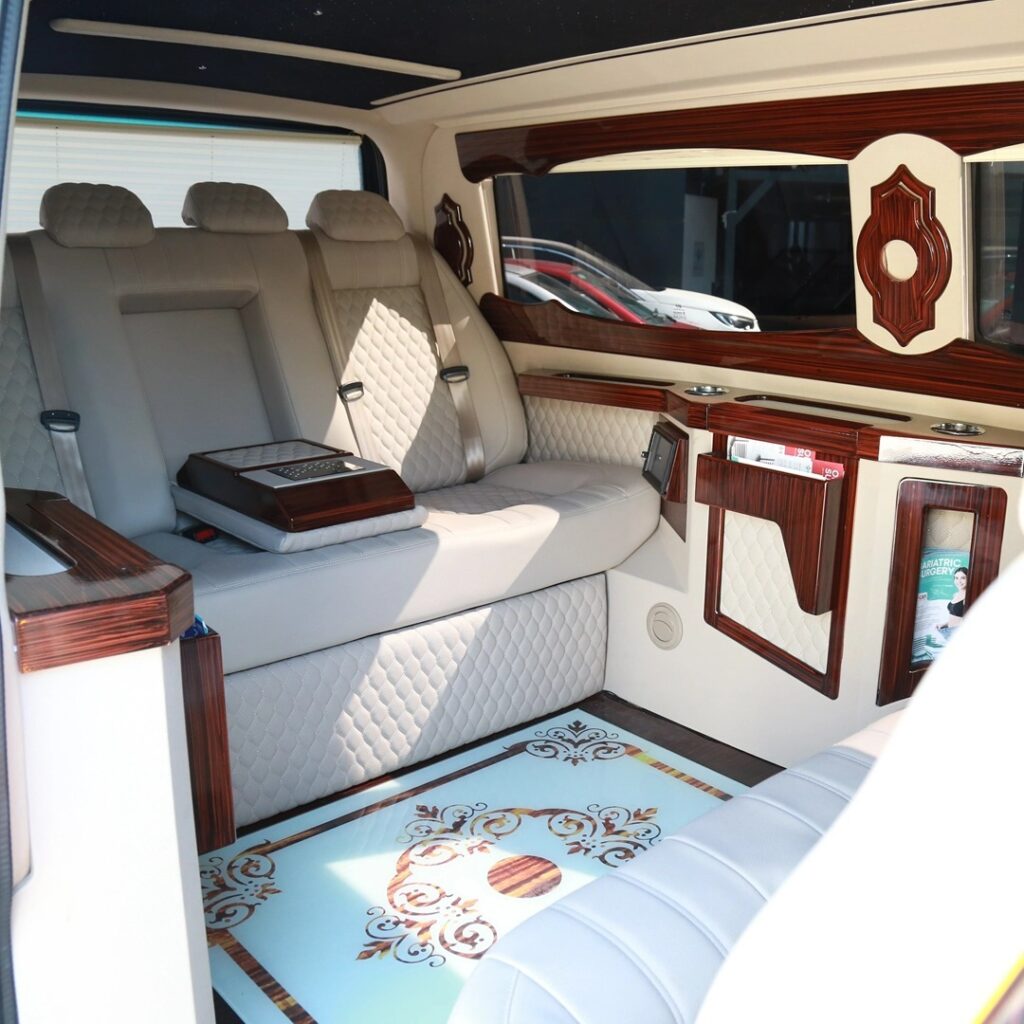
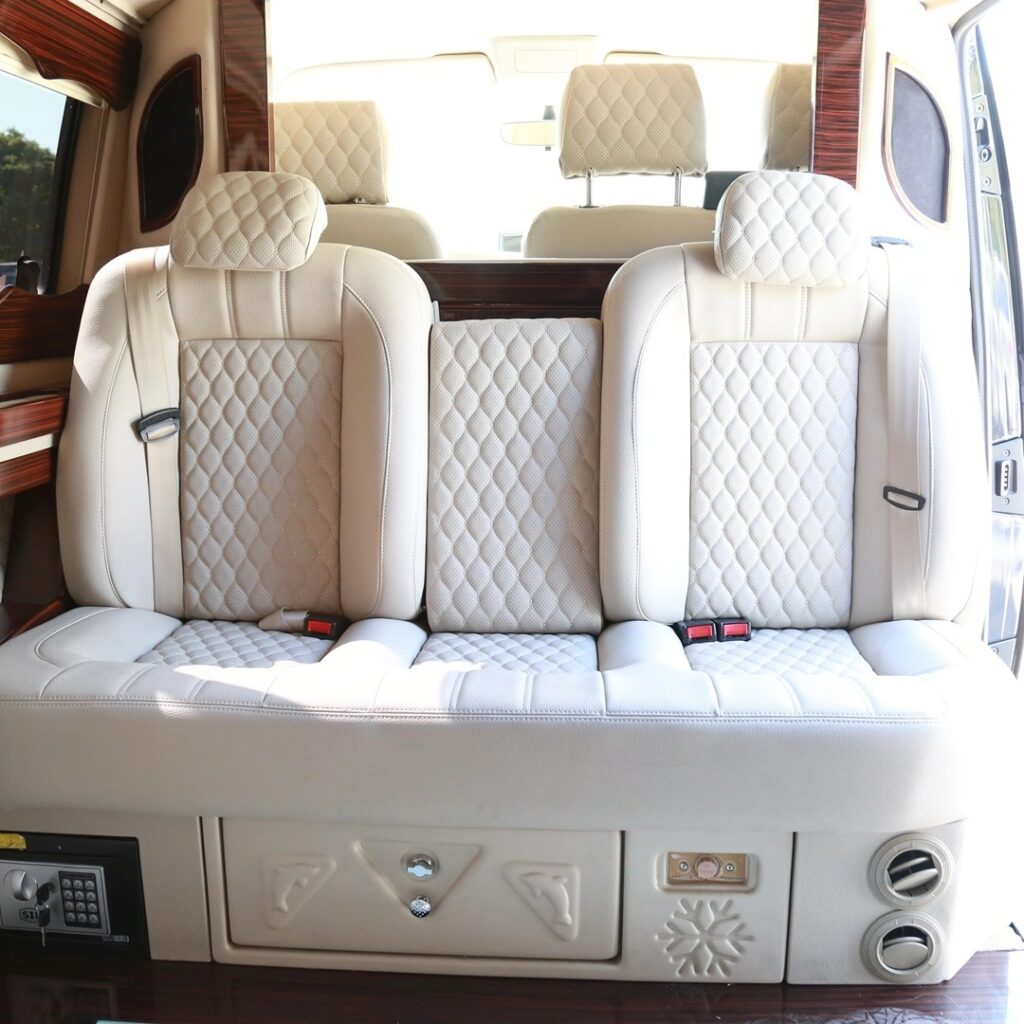
- Comprehensive Pre-Operative Testing: Detailed pre-surgery evaluations, including blood tests and imaging, to ensure you’re fully prepared.
- Post-Operative Check-Up: Thorough follow-up examinations before you leave to monitor your progress and address any immediate concerns.
- 1-Year Follow-Up Program: Stay connected with our medical team for ongoing support and guidance throughout your first year of transformation.
How long does rhinoplasty take?
The surgery typically takes 2-4 hours, depending on the complexity.
Will there be visible scars?
Closed rhinoplasty leaves no visible scars, while open rhinoplasty incisions are discreetly placed and fade over time.
Can rhinoplasty address both aesthetic and functional issues?
Absolutely! Rhinoplasty can improve both the appearance and function of your nose simultaneously.
Are the results permanent?
Yes, rhinoplasty results are long-lasting. While aging may bring subtle changes, your new nose shape will remain intact.
Begin Your Journey to Confidence
At Can Hospital Izmir, we’re here to help you achieve the nose you’ve always dreamed of with unmatched expertise and care. Whether you’re seeking a subtle enhancement or a life-changing transformation, we’ll ensure your experience is smooth, comfortable, and rewarding. Schedule your consultation today and take the first step toward a more confident, harmonious you.
Our Doctors of the Department
For general questions about our Can Hospitals, please complete the form below and an admissions staff member will contact you about your area of interest.
Ear Nose Throat
